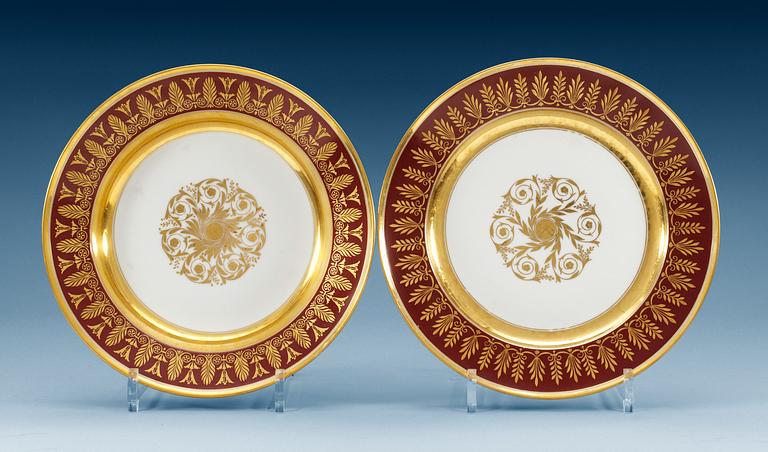TALLRIKAR, två stycken, porslin. Kejserliga Porslinsmanufakturen, St Petersburg. Alexander II:s period (1855-1881).
Rik förgylld och ciselerad dekor mot mörkröd fond. Diameter 23,5 cm.
Förgyllningen ngt nött.
Proveniens
Addition to the Guryev Service, originally ordered by Alexander I 1809-16.
Övrig information
The factory’s most significant product of this period was the Russian Service later known as the Guryev Service, named after Count Guryev in 1848 when the service was transferred from the Winter Palace to Peterhof. From the original service ordered by Alexander I in 1809-1816. Marked with numbers of the service and monograms of the decorators.
The formal table service for 50 people that Guryev commissioned for Alexander I was intended for the Winter Palace and was kept in the rooms of the Emperor’s wife, Elizabeth Alexeyevna. The designs for the service were the work of Stepan Pimenov. Its chief adornment is sculptural groups of peasant girls and youths elegantly holding vases, bowls and baskets above their heads. The general colour scheme of the ensemble - red-brown combined with gold - is grand. The dessert dishes was decorated with views of Moscow and St Petersburg, Peterhof and Gatchina, produced from paintings and engravings by Semion Shchedrin, Fedor Alexeyev, Andrei Ukhtomsky and Stepan Galaktionov, as well as scenes from Russian peasant life.



































